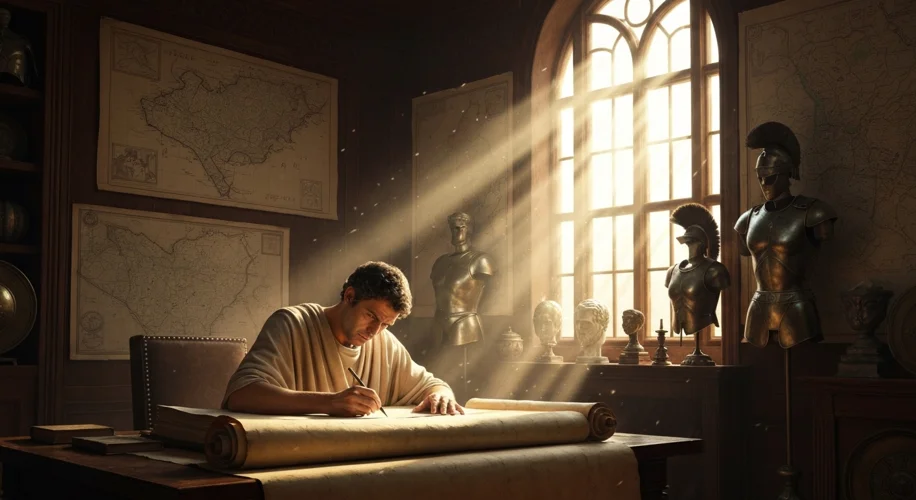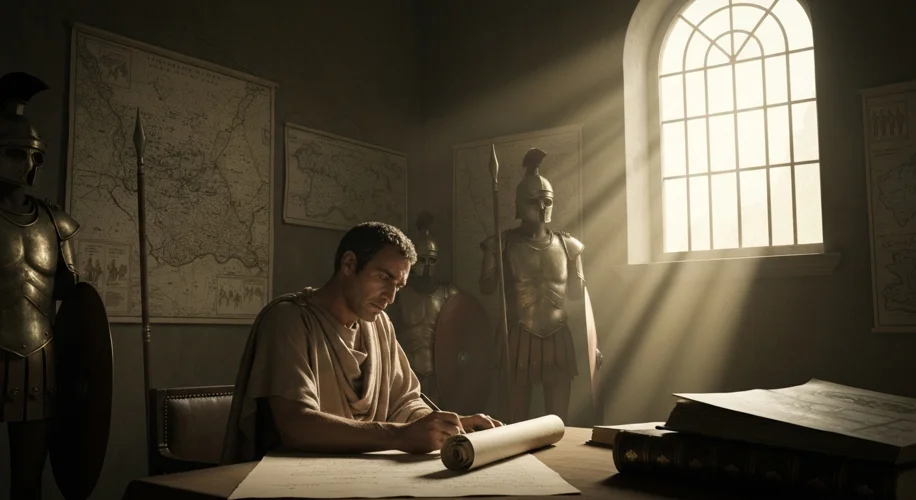History is not just a record of what happened; it is also a conversation across time. The authors of the past, meticulously crafting their accounts, often did so with a keen awareness that their words would echo into generations yet unborn. What hopes, fears, and directives did they embed within their texts, reaching out to us, their future readers?
Consider the profound words of Thucydides, the Athenian general who chronicled the Peloponnesian War. In his monumental work, he didn’t just detail battles and political maneuvers; he wrestled with the very nature of historical truth. He famously declared, “My work is not a thing of entertainment, but of permanent value… a possession for all time, rather than a prize for a moment’s listening.” This wasn’t mere authorial pride; it was a deliberate charge to future historians. Thucydides recognized the inherent subjectivity of historical accounts and the potential for bias to warp the past. His hope was that by presenting his findings with meticulous detail, striving for accuracy, and acknowledging the difficulty of the task, future generations would be able to discern the truth, learning from the mistakes and triumphs of Athens and Sparta.

Fast forward centuries to the Renaissance, a period of fervent rediscovery of classical knowledge. Humanist scholars like Petrarch were not just translators; they were passionate advocates for a renewed engagement with antiquity. In his letters, Petrarch often expressed a deep yearning for a future where the wisdom of the ancients would be fully appreciated and integrated into contemporary life. He lamented the “darkness” that had obscured classical learning and ardently wished that his efforts to unearth and disseminate these texts would foster a more enlightened future. He believed that by reviving the eloquence and philosophical depth of thinkers like Cicero and Virgil, future generations would gain a more profound understanding of human nature and the good life.
Later, during the Enlightenment, thinkers grappled with the very principles of reason and progress. Mary Wollstonecraft, in her seminal “A Vindication of the Rights of Woman,” penned in 1792, poured her heart into advocating for female education and equality. She was acutely aware of the prevailing societal norms that sought to confine women to domesticity and ignorance. Her passionate plea was not just for her contemporary male audience but for a future that would hopefully be more just and equitable. She wrote with an urgency that suggested a deep concern that her arguments might be dismissed or misinterpreted by those invested in the status quo. Her ultimate hope was that future women, armed with education and reason, would “reason as well as men,” and that society would finally recognize their full humanity.
Even in times of immense upheaval, authors have sought to guide future understanding. During the tumultuous French Revolution, pamphlets and declarations were churned out at a dizzying pace. Yet, amidst the chaos, figures like Olympe de Gouges, with her “Declaration of the Rights of Woman and the Female Citizen,” dared to imagine a future where the revolution’s ideals of liberty and equality extended to all, not just men. Her brave words, tragically leading to her execution, were a clear message to posterity: do not forget the excluded, do not repeat the mistakes of a revolution that promised much but delivered incompletely. Her very act of writing was a defiant act of hope for a future that would rectify the omissions of her present.
These voices from the past, separated from us by oceans of time and cultural change, speak to a universal human desire for understanding and continuity. They are not just chroniclers; they are architects of memory, hoping that their earnest efforts will not be in vain. Thucydides wanted truth, Petrarch sought enlightenment, Wollstonecraft championed equality, and de Gouges called for inclusivity. Their writings are a testament to the enduring power of the written word and a poignant reminder that the past is constantly being written, and re-written, by the present, with an eye toward the future.
Their hope is our inheritance. By engaging with their words, we not only learn about their times but also participate in the ongoing dialogue they initiated, ensuring their visions, and their warnings, continue to resonate.

